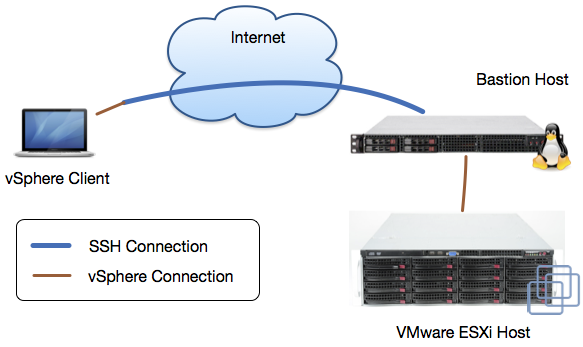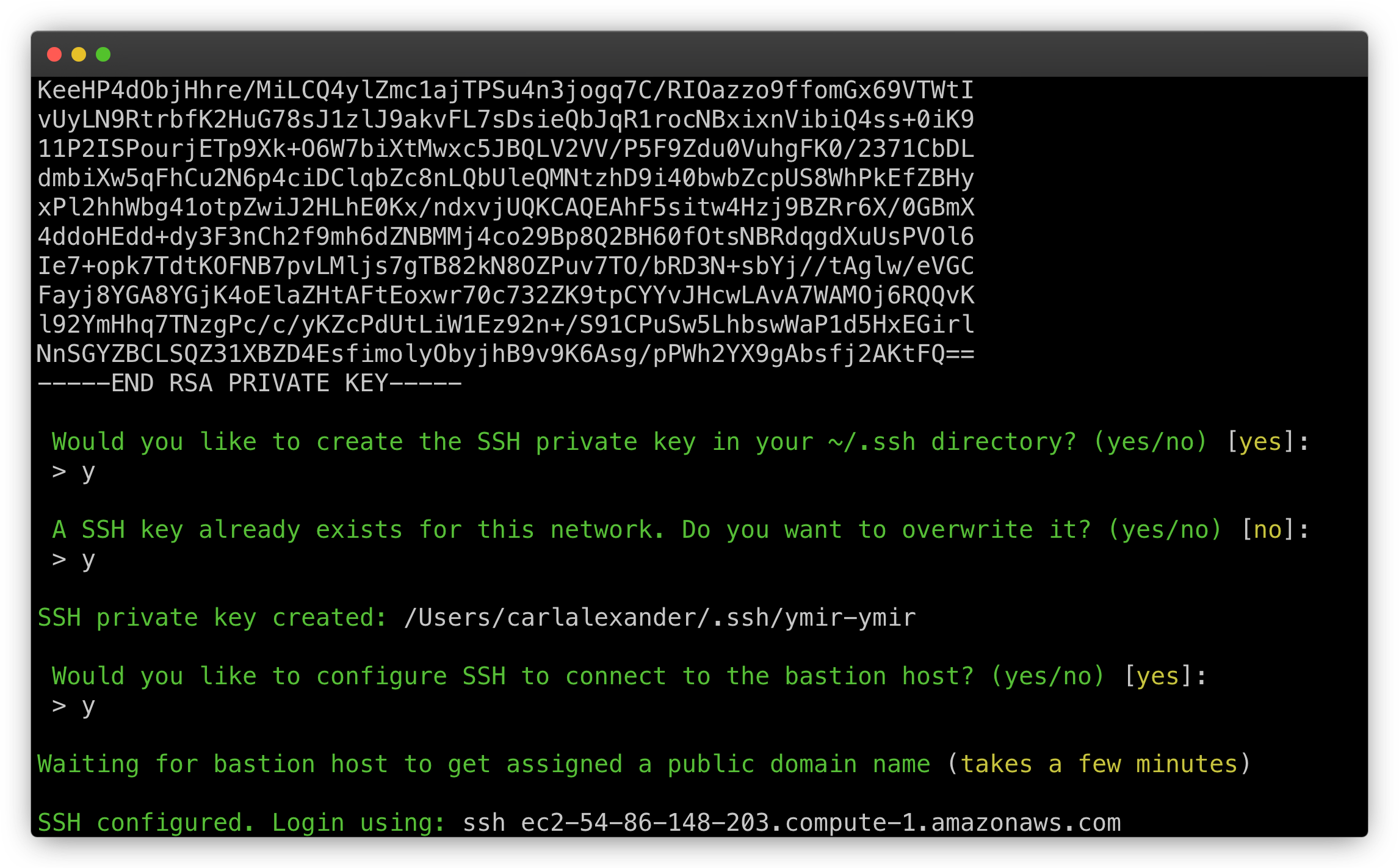


Bastionhost supports only Rivest-Shamir-Adleman (RSA) private keys that are generated by using the ssh-keygen utility.įor example, you can use the ssh-keygen utility to generate a public key and a private key for a host that runs Linux.If a remote-access CIDR block is configured for the deployment, an Elastic IP address is assigned, and inbound SSH (Secure Shell) access is permitted. You can connect to your Linux instance using Session Manager, a capability of AWS Systems Manager. In the Configure Private Key dialog box, enter the private key and click Save. The bastion host no longer has a public IP address assigned for remote access by default.On the Host Account tab, find the host account for which you want to configure a private key and click Set in the SSH Key column.On the Hosts page, find the host for which you want to configure a private key and click the name of the host.In the left-side navigation pane, choose Assets > Hosts.For more information, see Log on to the console of a bastion host. To configure SSH private key-based authentication, perform the following steps: If an SSH private key is required to log on to the host on which you want to perform O&M operations, you can configure SSH private key-based authentication. For more information, see Diagnose network issues.įind the host account whose password you want to delete and click Clear in the Password column.Ĭonfigure SSH private key-based authentication
SSH BASTION HOSTS INSTALL
For this tutorial, you install Tinyproxy.

If an error occurs during the verification, check the port settings of the host and the network connectivity between your host and Bastionhost. With the bastion host and the private cluster configured, you must deploy a proxy daemon in the host to forward traffic to the cluster control plane.
SSH BASTION HOSTS VERIFICATION
Password verification is performed over ports. Note The username and password of the host account must be the same as the username and password of your host.


 0 kommentar(er)
0 kommentar(er)
